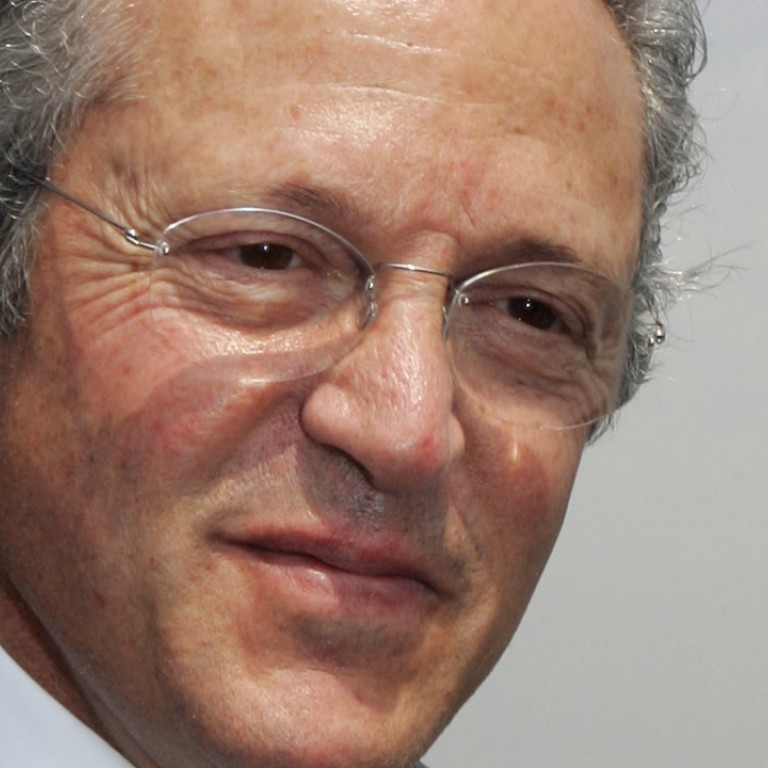
French-US art dealer in court over multibillion inheritance spat
A multi-generational inheritance squabble in one of the world’s foremost art-dealing dynasties with a penchant for thoroughbred racehorses will be played out in a Paris court from today.
In a case worthy of a soap opera, the spotlight will be thrown on the activities of New-York based Wildenstein and Company when several family members go on trial on charges of tax fraud and money laundering.
Franco-American Guy Wildenstein, 70, and his entourage are at the heart of the investigation and could face up to 10 years in jail in a saga which has gripped high-society watchers.
The case follows an investigation into years of alleged attempts by the dynasty to place assets beyond the reach of the taxman.
Wildenstein, a silver-haired art dealer who owns and breeds race horses, was in 2009 awarded France’s highest award by then-president Nicolas Sarkozy.
But a year later, French investigators began looking into his affairs following accusations he concealed much of his inherited fortune from the taxman and from his heirs via a web of opaque trusts and tax havens.
Sylvia Roth, widow of the gallerist’s father, Daniel Wildenstein, filed a criminal complaint against her stepson to that effect in a bitter dispute over the size of the family fortune.
Daniel Wildenstein died in 2001, whereupon, French authorities allege, his heirs began hastily transferring abroad assets of the dynasty from New York.
After his death, Guy Wildenstein assumed control of the arts business, while younger sibling Alec concentrated on horse breeding.
But Guy also assumed control of the latter when Alec – famous for his messy divorce from Swiss socialite and cosmetic surgery devotee Jocelyne Perisse, nicknamed “Bride of Wildenstein” – died in 2008.
French tax authorities believe the Wildensteins could owe some US$600 million.
In 2008, the dynasty valued Daniel’s estate at just US$61 million after Guy took over as president of the family’s galleries.
That was despite assets including a host of works by rococo painter Fragonard and post-impressionist Bonnard and a stable of thoroughbred horses.
It also included a vast real estate portfolio, including a luxury Kenyan ranch used as the backdrop for the film Out of Africa.
According to one source, US tax collection service IRS believes the Wildensteins have paintings worth an estimated billion dollars.
Guy and Alec Wildenstein together declared just US$44.5 million for inheritance tax purposes in 2002. To pay the US$19.2 million bill, they handed over bas-reliefs sculpted for Marie-Antoinette, the wife of Louis XVI.
Guy says there was no legal obligation to report trust-held assets on his father’s death.
Due in court for the month-long trial are Guy, his nephew Alec Junior and Alec’s widow Liouba Stoupakova, who is herself at loggerheads with her in-laws.
It is likely the case would never have come to light had it not been for the legal battles fought by female members of the clan – not least Jocelyne’s 1998 divorce settlement, which lifted the veil on the Wildensteins’ business dealings.
Paris, Jan 3, 2016 (AFP) - A multi-generational inheritance squabble in one of the world’s foremost art-dealing dynasties with a penchant for thoroughbred racehorses will be played out in a Paris court from Monday.
In a case worthy of a soap opera, the spotlight will be thrown on the activities of New-York based Wildenstein and Company when several family members go on trial on charges of tax fraud and money-laundering.
Franco-American Guy Wildenstein, 70, and his entourage are at the heart of the investigation and could face up to 10 years in jail in a saga which has gripped high-society watchers.
The case follows an investigation into years of alleged coordinated attempts by the dynasty to place assets beyond the reach of the taxman.
Wildenstein, a silver-haired art dealer who owns and breeds race horses, was in 2009 awarded France’s highest award by then-president Nicolas Sarkozy.
But a year later, French investigators began looking into his affairs following accusations he concealed much of his inherited fortune from the taxman and from his heirs via a web of opaque trusts and tax havens.

.png?itok=arIb17P0)